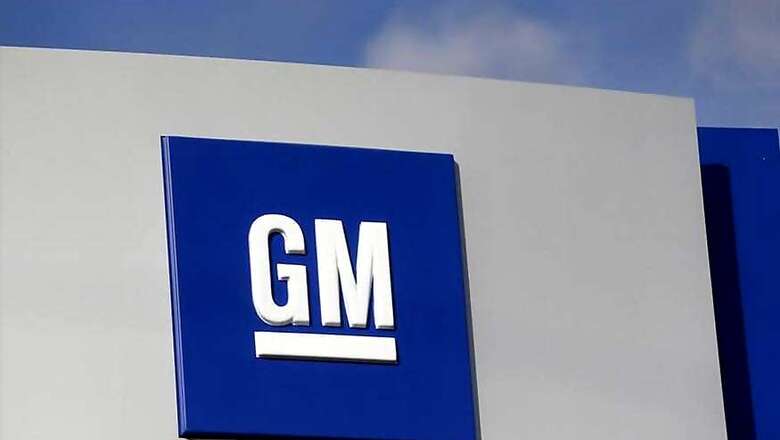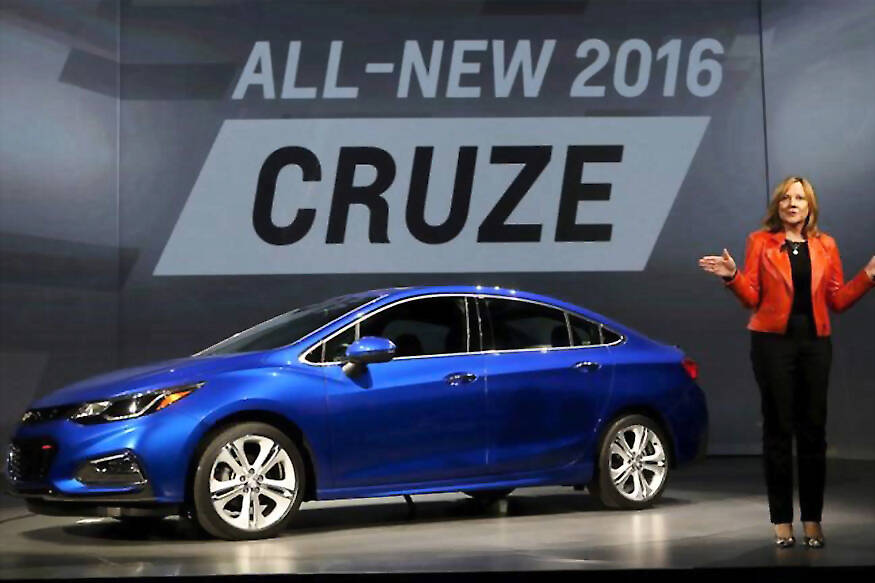
views
I still remember my first drive in the Chevrolet Cruze sedan. Those few hours spent driving the premium sedan were so intense that I still recommend the car to anyone and everyone looking forward to buy a car in that price bracket. Sadly, nobody won't be able to buy any of the Chevy's cars anymore as General Motors has announced to seize its sales operation in India.
The move has caused a major uproar in the industry since the world’s 3rd largest car manufacturer couldn’t sustain it more in the country. Was this a knee-jerk reaction or a thoughtful move? Was it necessary to pull-out completely from India or they could have given a thought for something else? Here’s our take on why GM took such drastic step that could affect the livelihood of hundreds!
A bit of history
It will be a bit unfair to tell you the history of GM, since GM itself is a big contributor to the history of automobiles. Started more than a century ago in the U.S, GM started its operations in India in 1928. By 1996, the American auto giant emerged as a full-fledged manufacturer who started producing Opel cars in its Halol facility. In 2003, production of Chevrolet cars started at the same location.
As of today, GM runs a Technical Centre in Bangalore, has a manufacturing plant in Talegaon and exports 90% of its production to countries like Mexico, Chile, Peru and other South American countries. They have already announced to seize the domestic sales, meaning the Talegaon plant will be producing export-only vehicles.

General Motors in numbers
General Motors is a very big brand and when we say big, it means GM is the third largest car producer in the world. GM sold close to 10 million cars in 2016 alone, a little less than Volkswagen and Toyota. When it comes to the domestic sales, the situation is worse than ever, with only 28949 units (Data sourced from Team BHP) retailing in 2016. But it’s the last 5 year trend that worries us the most. Here are the annual sales figures from 2011 onwards-
2011 – 111056 units
2012 – 92063 units
2013 – 86825 units
2014 – 57565 units
2015 – 36518 units
2016 – 28949 units
- It’s pretty much evident from the data how badly GM’s sales has trounced. To put things in perspective, GM India was contributing less than 0.3% of the global sales.
For a business of this magnitude, 0.3% is not enough to keep a company afloat.
- Even if we keep global market share aside, GM’s domestic market share was less 1% of the India’s 2.5 million annual car market.
But Cruze and Beat were good cars!
There’s no denying the fact that Cruze was one of the best driver’s cars, not only in its own segment, but across all segments. Also, Beat was the face of funky hatchbacks for youths and Tavera was the first choice of fleet owners before Innova arrived. Meaning, Chevrolet had a good portfolio with 9 cars to choose from in 2016, yet 6 out of the 9 cars couldn’t even sell more than 1000 units a month.
Here’s the model-wise sales figures from 2016-
Beat – 9793 units
Captiva – 22 units
Cruze – 1025 units
Enjoy – 5708 units
Sail – 4070 units
Sail U-VA - 2218 units
Spark - 614 units
Tavera - 11320 units
Trailblazer – 144 units
Even their latest and ambitious product, Trailblazer SUV couldn’t sell more than 150 units in 2016.
Other manufacturers are also in the loss
When you compare Chevrolet’s business to that of other manufacturers who are not doing that good in India, you will be surprised to see that Chevrolet is still not the worst performer. Manufacturers like Nissan, Skoda, Fiat and Mitsubishi are even below the GM in terms of sales numbers. Here’s a lowdown on sales of these manufacturers from 2016–
Nissan – 14725 units
Skoda – 13370 units
Fiat – 6642 units
Mitsubishi – 743 units
While it will be foolish of us to compare these manufacturers, there’s a bit of relevance in discussing sales of these manufacturers. Unlike GM, who only sells Chevrolet in the country, Nissan is in alliance with Renault and Skoda is in alliance with Volkswagen, or rather owned by Volkswagen. So these manufacturers can sustain a bit of loss in terms of monetary value. What they are getting in return is brand recognition.
When asked about keeping afloat domestic sales like these manufacturers, Kaher Kazam, President and CEO, GM India said – “Every OVM has a different strategy to run the business and has different footprints. Ours is a decision in-line with global brand strategy. It’s all based on the capitalization of funds and we decided to keep the export only structure."
Final Word
It is pretty much evident from the data above that GM was in a dire situation, a situation that didn't erupt all of a sudden. For what we feel, GM’s product placement, marketing efforts and strategy proved fatal for this global brand. Leaving apart a couple of products, none of the cars could match the competitor’s package. As much as our heart goes out for the iconic manufacturer, it’s probably in the best of the interest of the American car manufacturer to stop the sales and concentrate on exports!



















Comments
0 comment